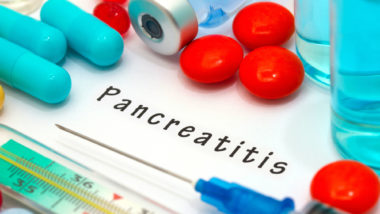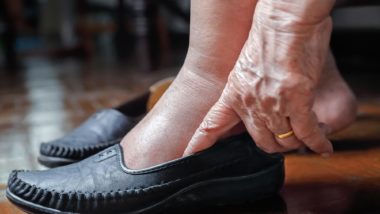Top Class Actions’s website and social media posts use affiliate links. If you make a purchase using such links, we may receive a commission, but it will not result in any additional charges to you. Please review our Affiliate Link Disclosure for more information.

In August of last year, the U.S. Food and Drug Administration issued a warning about an unpleasant side effect possibly linked to sodium-glucose cotransporter-2 inhibitors, also known as SGLT2 inhibitors.
Allegedly, these drugs have been linked to cases of patients developing severe flesh-eating infections — on their genitals, no less.
This disease is known as necrotizing fasciitis of the perineum, or Fournier’s gangrene. This condition is rare, but it is serious when it appears. It can develop and spread quickly, so patients who notice the signs should seek medical attention right away.
SGLT2 inhibitors is a relatively new class of diabetes drugs that includes:
- Invokana
- Invokamet/Invokamet XR
- Farxiga
- Xigduo XR
- Qtern
- Jardiance
- Glyxambi
- Synjardy/Synjardy XR
- Steglatro
- Segluromet
- Steglujan
These drugs are used to treat type-2 diabetes. They work to treat diabetes by helping to lower a patient’s blood sugar, causing them to excrete extra sugar in their urine.
This extra sugar in the urine is what can cause a user to develop the flesh eating infection. Live Science explains that when there is an excess of sugar in the urine, and as a result, around the genitalia, bacteria can thrive, because they eat sugar.
This can lead to people developing a range of infections, including common yeast infections and urinary tract infections. In rare cases, however, the infection can be a more dangerous one, like Fournier’s gangrene.
According to the FDA, twelve cases of Fournier’s gangrene in patients taking an SGLT2 inhibitor have been reported between March 2013 to May 2018. All of these patients required hospitalization and surgeries, some of which were disfiguring. Happily, the occurrence of necrotizing fasciitis of the perineum is rare, but its effects can be devastating.
Reportedly, in most cases, the disease developed within the first several months of a patient using the drugs.
In contrast, other diabetes drugs that are not SGLT2 inhibitors have a much lower likelihood of being connected to flesh eating infection cases. Only six cases of the condition have been identified in all other diabetes drug classes over more than 30 years.
The FDA warns people to seek medical attention immediately if they begin to experience any swelling, irritation, or itching in the area from their genitals back to their rectum, or if they have a fever higher than 100.4 degrees Fahrenheit.
Though these symptoms may not seem severe at first, they can quickly worsen. After symptoms have developed, they can become much more severe and much harder to treat. The disease can become life-threatening. Unfortunately, if the disease progresses, it can extend up into the abdominal wall. To make matters worse, in some cases, surgeries may be required to remove the infected flesh, which can be disfiguring.
The FDA’s August warning about drugs like Glyxambi says that when a flesh eating infection develops, “the bacteria usually get into the body through a cut or break in the skin, where they quickly spread and destroy the tissue they infect.”
Join a Free Diabetes Medications & Flesh-Eating Infection Lawsuit Investigation
The type-2 diabetes medications linked to the flesh-eating infection include:
- Invokana
- Invokamet/Invokamet XR
- Farxiga
- Xigduo XR
- Qtern
- Jardiance
- Glyxambi
- Synjardy/Synjardy XR
- Steglato
- Segluromet
- Steglujan
If you or a loved one took one of the type-2 diabetes medications listed above and suffered from a flesh-eating genital infection, you may qualify to join this diabetes medication lawsuit investigation. Fill out the FREE form on this page for more information.
ATTORNEY ADVERTISING
Top Class Actions is a Proud Member of the American Bar Association
LEGAL INFORMATION IS NOT LEGAL ADVICE
Top Class Actions Legal Statement
©2008 – 2024 Top Class Actions® LLC
Various Trademarks held by their respective owners
This website is not intended for viewing or usage by European Union citizens.
Get Help – It’s Free
Join a Free Diabetes Medications & Flesh-Eating Infection Lawsuit Investigation
If you qualify, an attorney will contact you to discuss the details of your potential case at no charge to you.
PLEASE NOTE: If you want to participate in this investigation, it is imperative that you reply to the law firm if they call or email you. Failing to do so may result in you not getting signed up as a client or getting you dropped as a client.
E-mail any problems with this form to:
Questions@TopClassActions.com.
Oops! We could not locate your form.












